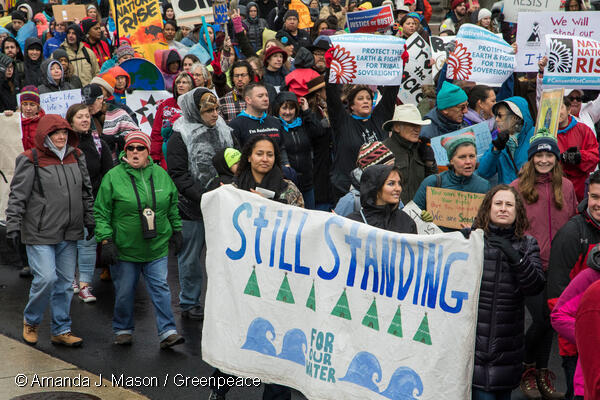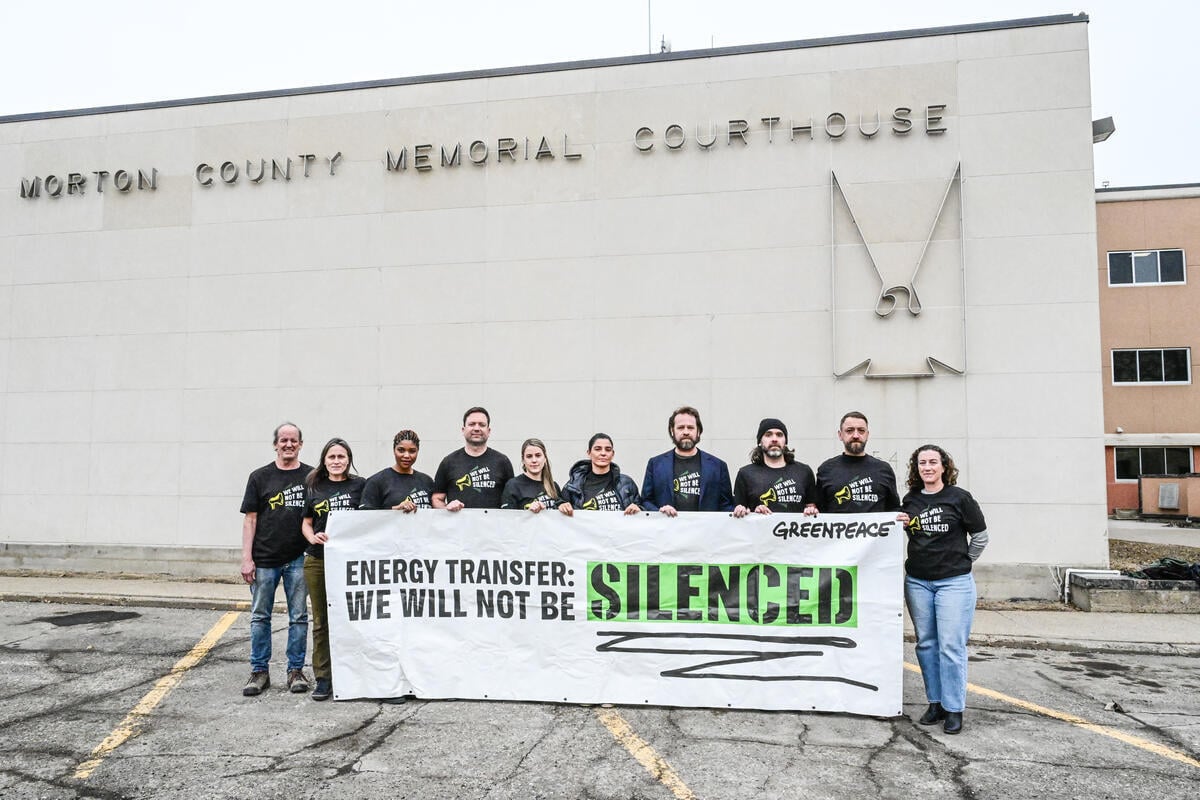Published: 10-25-2023
Read the report: Download Dollars vs. Democracy 2023 – Full Report

Americans overwhelmingly support government action on the climate crisis. As a result, the fossil fuel industry has expanded its playbook to delay the transition to clean energy and protect its profits through efforts that undermine our right to free speech.
Since the Dakota Access Pipeline protests at Standing Rock in 2016, oil and gas companies have played a key role in the creation and spread of anti-protest laws with provisions specifically intended to stifle protest near fossil fuel facilities. 18 states accounting for roughly 60% of oil and gas production have enacted sweeping versions of such legislation. Another four states have enacted narrower versions of the same legislation, which could be exploited by prosecutors seeking to issue trumped-up charges against peaceful protesters.
Many oil and gas companies that have lobbied for anti-protest laws have also filed SLAPPs—an acronym for strategic lawsuit against public participation—against people and organizations that have opposed fossil fuel expansion. Out of 116 SLAPP and judicial harassment claims since 2010, 86 were filed by companies that have lobbied for anti-protest laws, including ExxonMobil, Energy Transfer, Chevron, and TC Energy.
The industry has cooperated with law enforcement agencies across the country in ways that equate non-violent protest with domestic violent extremism. This can include fossil fuel companies providing subsidies to law enforcement agencies, coordinating protest responses and sharing personal information on activists, and deploying private security firms whose personnel included off-duty police officers.
Despite Big Oil’s efforts to stifle widespread calls for climate action, activists and water protectors have stood firm in opposition to fossil fuel expansion. Peaceful protest and dissent have long been instrumental to climate, environmental justice, and civil rights victories in the United States and globally. This is our moment to fight back against the fossil fuel industry’s assault on free speech through measures that include:
- Protecting the right to protest and dissent;
- Reaffirming Indigenous sovereignty and providing redress for human rights violations;
- Strengthening the rights of communities to defend themselves against the harms of the fossil fuel industry, and;
- Preventing law enforcement from serving the interests of the fossil fuel industry over the interests of the general public.



